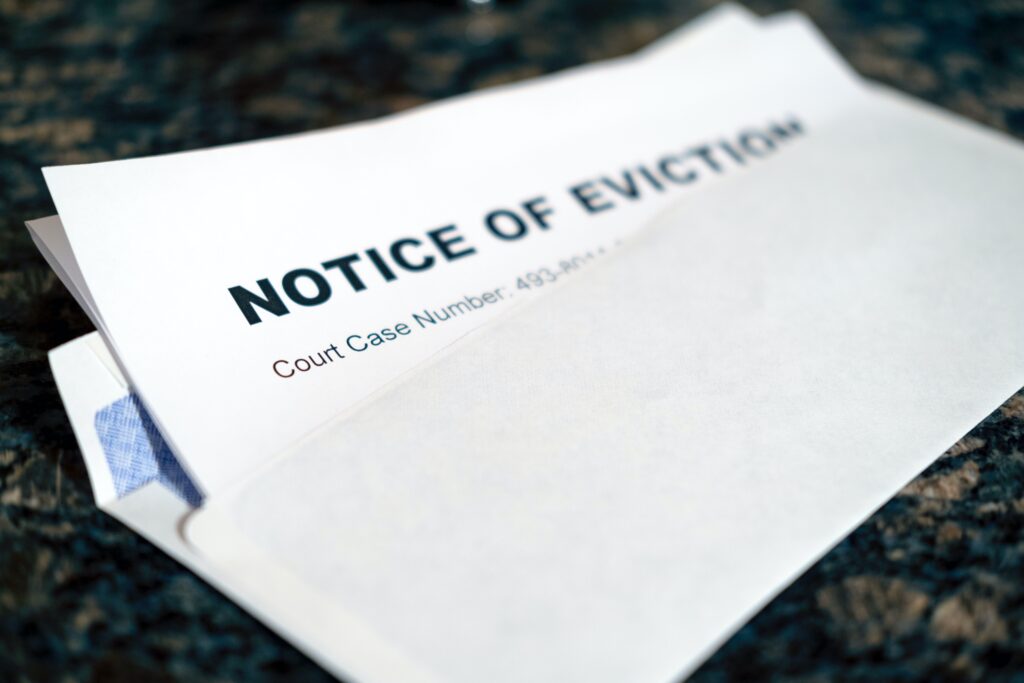What Are Squatter’s Rights?: A Guide for North Carolina Property Management

Squatting is a complex issue that can lead to legal complications and financial losses. As a property manager or landlord in North Carolina, it’s essential to know the risks involved with squatters and understand the laws and guidelines governing their presence.
What Is a Squatter?
A squatter is someone who occupies a property without the owner’s permission or a valid legal right to be there. In some cases, squatters may wrongfully assume occupancy when a property is vacant, abandoned, or neglected.
Squatting can occur in both residential and commercial properties, posing significant challenges for property owners and managers.
Laws & Guidelines in North Carolina
In North Carolina, the law considers squatters equivalent to trespassers and provides property owners with several legal remedies to regain possession of their property. The laws and guidelines surrounding squatters’ rights in North Carolina are:
- Trespassing laws: Squatting is considered a form of trespassing, which is a criminal offense in North Carolina. Property owners have the right to report squatters to law enforcement agencies.
- Eviction process: To remove squatters from your property, you must follow the established eviction process in North Carolina. This typically involves issuing a written notice to the squatters, giving them a specific period to vacate the premises.
- Unlawful detainer laws: These laws provide property owners with a legal mechanism to regain possession of their property by filing a lawsuit against the squatters.
- Due process: Following due process during eviction proceedings is crucial to ensure compliance with North Carolina laws. This includes providing adequate notice, filing the necessary paperwork, and following the appropriate legal procedures.
Getting Rid of Squatters
Dealing with squatters can be a challenging and delicate process. Thankfully, there are several effective strategies that property owners can use to handle this situation, including:
- Thorough documentation: Maintain thorough documentation of your property’s ownership, occupancy status, and any attempts to communicate with the squatters. This documentation will be crucial evidence in legal proceedings.
- Clear communication: Initially, attempt to communicate with the squatters to inform them of their unauthorized occupancy and provide them with a written notice to vacate the premises. Clearly state the consequences if they fail to comply.
- Legal assistance: If squatters refuse to leave or fail to respond to your notices, consult a qualified attorney experienced in landlord-tenant law or eviction proceedings. They can guide you through the legal process and help protect your rights as a property owner.
- Eviction process: If negotiation and communication fail, follow the established eviction process. This process involves filing the appropriate legal paperwork, attending court hearings, and obtaining an eviction order.
- Law enforcement: Involve local law enforcement to assist in removing the squatters from the property if necessary. Provide them with the necessary documentation to support your claim of ownership and unauthorized occupancy.
Get Help From Block & Associates
While dealing with squatters can be complex and time-consuming, understanding the laws and guidelines in North Carolina and following the appropriate legal procedures will help protect your rights as a property owner.
Remember to document all interactions with squatters, communicate clearly, seek legal advice when needed, and involve law enforcement if necessary. By taking proactive steps, you can effectively handle squatters and minimize potential risks to your property and rental business.
It’s important to note that the information in this article is for general guidance purposes only and should not be considered legal advice. For legal concerns or questions regarding squatters, eviction procedures, or landlord-tenant issues, consult a qualified attorney or property management expert, like those at Block & Associates.
Call 919-459-6300 to request a free rental analysis today.
